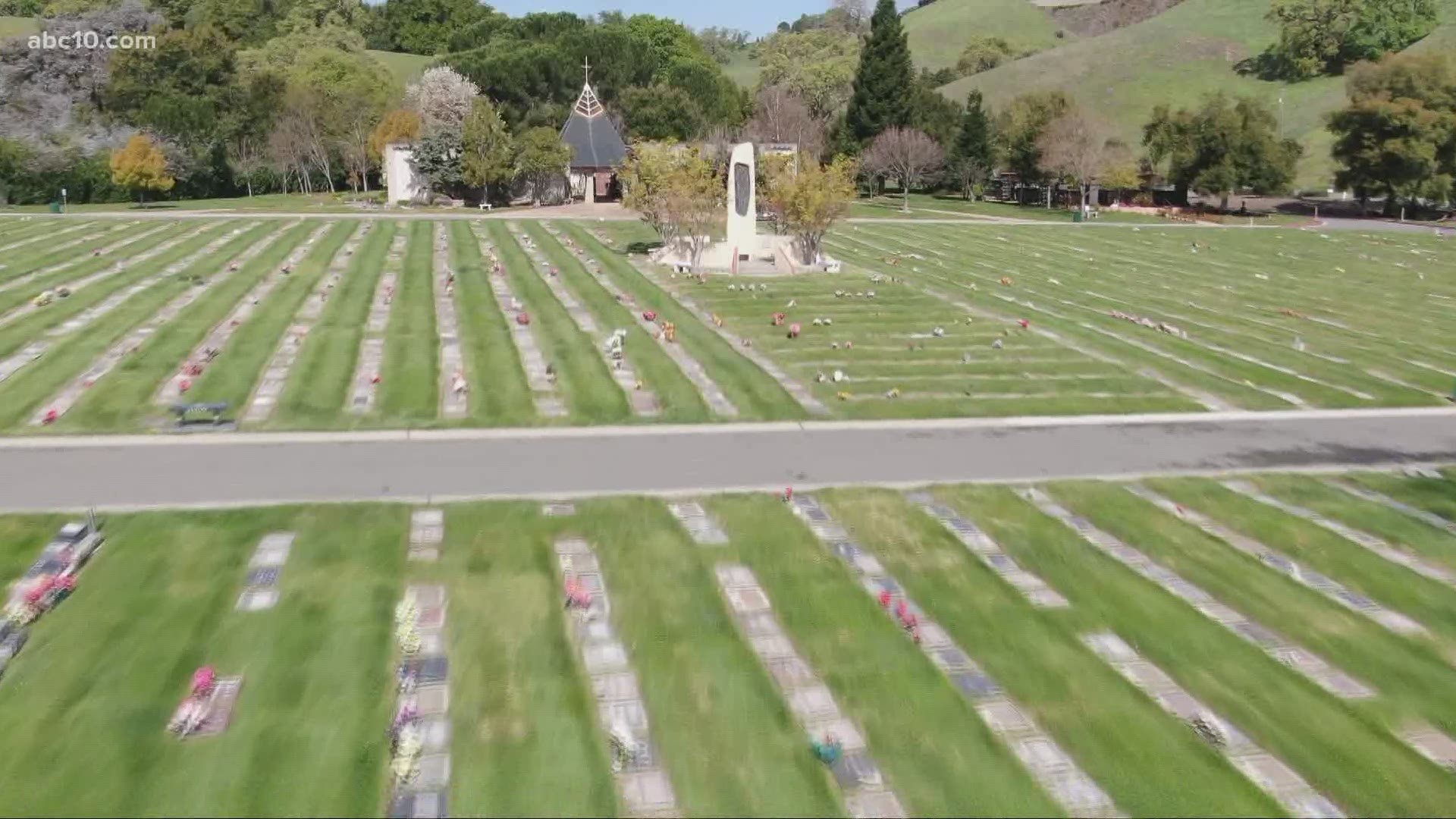SACRAMENTO, Calif. —
The novel coronavirus has shut down businesses across the country and changed operations for businesses deemed “essential” by government officials.
But as more things change, there is one constant — death.
Funeral homes, crematories and cemeteries are adjusting their services to accommodate families while also abiding by local orders that minimize gatherings.
"These are challenging times in our lives and funeral services are no exception," said Bob Achermann, executive director of the California Funeral Directors Association. "It's made the process of helping a family navigate the death of a loved one that much more challenging."
RELATED: Young mother battling COVID-19: 'I would have not left my house if I knew how miserable this was'
Achermann said funeral home directors want to help families get the closure they need when a loved one dies. Under ordinary circumstances that would mean a wake, followed by a service at a church or the funeral home and a repast after the burial.
Now, Achermann said, funeral homes are managing those expectations and providing alternatives.
"Funeral homes are helping families make difficult decisions to delay services. Virtual or streaming services have become more popular in the last few weeks," he said. "Graveside services are limited to five people. That can be a very tough decision about who can attend and who can't."
Achermann said COVID-19 has led to many funeral homes changing the way they interact with families.
"A lot of times multiple families want to come down and make arrangements. Funeral homes are discouraging that," he said. "They’re trying to reduce unnecessary meetings. Instead opting for phone calls, emails and docusign,” he said.
Cemeteries are also making changes in order to discourage public gatherings, Achermann said.
"I've heard from several cemeteries that they're closing their grounds to people who want to visit loved ones' grave sites," he said. "Out of an abundance of caution, they said they’re going to close the grounds to those types of visits for the time being. Some are even discouraging graveside burials."
There's also the responsibility of funeral home directors to keep their staff safe from exposure to COVID-19.
The virus is most often spread when a living person comes in contact with respiratory droplets produced when an infected person coughs or sneezes. This route of transmission is not a concern when handling human remains or performing postmortem procedures, according to the Centers for Disease Control and Prevention (CDC).
Achermann said California law requires health facilities to inform funeral directors prior to removal of a body that the deceased has died from a communicable disease.
"There's no evidence that there’s transmission from the body, but what about the surrounding environment," he said. "When someone passes away, they may not have been diagnosed. So when the funeral home sends its staff into their home or hospital or nursing facility, they’re going to want access to personal protective equipment (PPE) to make sure they don’t get exposed."
Typically those removing bodies wear gloves but not N95 masks, Achermann said.
"They are putting on more PPE than they used to. That wasn't the standard before," Achermann said. "I've certainly heard from funeral homes that they’ve had problems getting PPE. Companies are on back order and it’s taking longer to get."
Achermann said 64% of Californians are cremated. The official death rate hasn’t been released, Achermann said, but he doesn’t think it has dropped. If anything, COVID-19 would add to the state’s death rate, he said.
"It's a time for touching, hugging and those are things that we can't do right now," Achermann said. "There are fewer chapel services, memorials and family gatherings. I think the nature of the services funeral homes provide has changed."
FOR THE LATEST CORONAVIRUS NEWS,
DOWNLOAD THE ABC10 APP:
►Stay In the Know! Sign up now for ABC10's Daily Blend Newsletter



